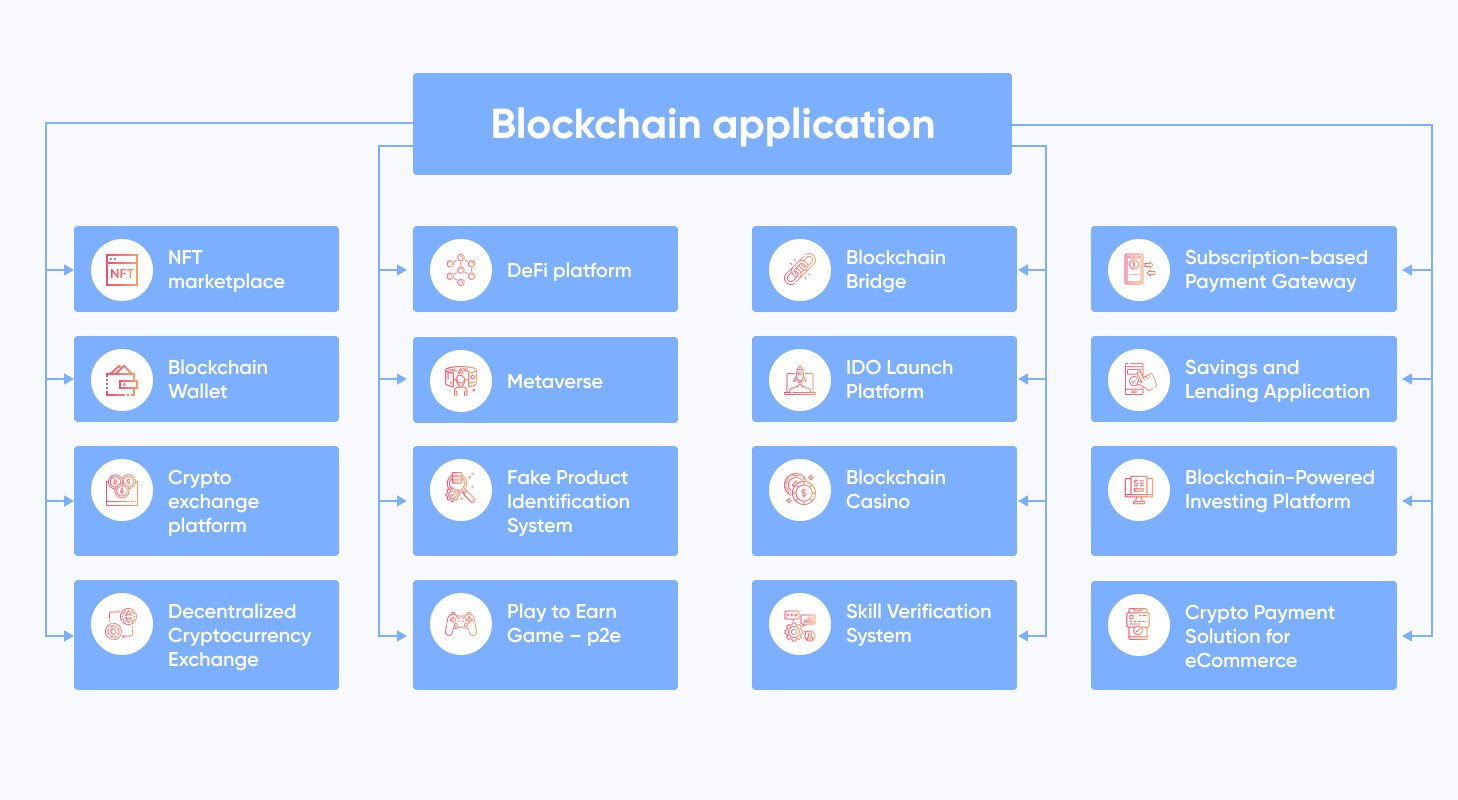An Overview of the Most Innovative Blockchain Projects

- Exploring the Impact of Blockchain Technology on Various Industries
- Revolutionizing Supply Chain Management with Blockchain Solutions
- The Rise of Decentralized Finance (DeFi) Platforms
- Enhancing Data Security and Privacy with Blockchain
- Blockchain Applications in Healthcare and Pharmaceuticals
- The Future of Voting Systems: Blockchain Technology in Elections
Exploring the Impact of Blockchain Technology on Various Industries
Blockchain technology has been making waves across various industries, revolutionizing the way businesses operate and interact with customers. Let’s explore the impact of blockchain technology on different sectors:
- Finance: Blockchain has disrupted the financial industry by providing a secure and transparent way to conduct transactions. It has enabled faster cross-border payments, reduced fraud, and increased financial inclusion.
- Healthcare: In the healthcare sector, blockchain technology is being used to securely store and share patient data, streamline processes, and improve the overall quality of care. It ensures data integrity and privacy, leading to better patient outcomes.
- Supply Chain: Blockchain is transforming supply chain management by enhancing transparency, traceability, and efficiency. It enables real-time tracking of goods, reduces counterfeiting, and improves trust among stakeholders.
- Real Estate: Real estate transactions are being revolutionized by blockchain technology through smart contracts, which automate and secure property transfers. It simplifies the buying and selling process, reduces fraud, and lowers transaction costs.
- Government: Governments are exploring the use of blockchain for various applications, such as voting systems, identity management, and public records. It enhances security, transparency, and accountability in government operations.
Overall, blockchain technology is reshaping industries by providing innovative solutions to age-old problems. Its decentralized and immutable nature offers a level of trust and security that traditional systems lack. As more businesses and organizations adopt blockchain, we can expect to see further advancements and efficiencies in various sectors.
Revolutionizing Supply Chain Management with Blockchain Solutions
Blockchain technology has been making waves in the supply chain management industry, offering innovative solutions to long-standing challenges. By leveraging blockchain solutions, companies can revolutionize the way they track and manage their supply chains, leading to increased transparency, efficiency, and security.
One of the most promising blockchain projects in this space is VeChain, a platform that uses blockchain technology to create a tamper-proof record of every step in the supply chain. This allows companies to track the provenance of their products in real-time, ensuring that they are authentic and ethically sourced. By implementing VeChain’s blockchain solutions, companies can reduce the risk of counterfeit goods entering their supply chain and improve trust with consumers.
Another groundbreaking project is IBM’s Food Trust, which aims to enhance food traceability and safety using blockchain technology. By creating a digital ledger of transactions, IBM’s Food Trust enables food producers, suppliers, and retailers to quickly trace the origin of contaminated products and remove them from the supply chain. This not only helps prevent foodborne illnesses but also builds consumer confidence in the safety and quality of the products they purchase.
Overall, blockchain solutions are transforming the supply chain management industry by providing a secure and transparent way to track products from manufacturer to consumer. By embracing these innovative technologies, companies can streamline their operations, reduce costs, and build trust with their customers. As blockchain continues to evolve, we can expect even more groundbreaking projects to revolutionize the way we manage supply chains in the future.
The Rise of Decentralized Finance (DeFi) Platforms
The rise of decentralized finance (DeFi) platforms has been one of the most significant developments in the blockchain space in recent years. These platforms leverage blockchain technology to create financial services that are accessible to anyone with an internet connection, without the need for traditional financial intermediaries such as banks.
DeFi platforms offer a wide range of services, including lending, borrowing, trading, and asset management. One of the key advantages of DeFi is that it allows users to retain control of their assets at all times, rather than entrusting them to a third party. This increased level of control has made DeFi platforms increasingly popular among users who value privacy and security.
One of the most innovative aspects of DeFi platforms is the use of smart contracts, which are self-executing contracts with the terms of the agreement directly written into code. Smart contracts enable DeFi platforms to automate many aspects of financial transactions, reducing the need for human intervention and streamlining processes.
Overall, the rise of decentralized finance platforms represents a significant shift in the way financial services are delivered and accessed. As these platforms continue to evolve and mature, they have the potential to revolutionize the traditional financial system and empower individuals to take control of their financial futures.
Enhancing Data Security and Privacy with Blockchain
Blockchain technology has been increasingly utilized to enhance data security and privacy across various industries. By leveraging the decentralized and immutable nature of blockchain, organizations can ensure that sensitive information is securely stored and accessed only by authorized parties. This innovative approach to data security has the potential to revolutionize how businesses handle and protect their valuable data.
One of the key benefits of using blockchain for data security is its ability to create a transparent and tamper-proof record of all transactions. This means that any changes made to the data are immediately visible to all participants in the network, making it nearly impossible for malicious actors to alter or manipulate the information. Additionally, blockchain technology uses advanced cryptographic techniques to encrypt data, further enhancing its security.
Furthermore, blockchain can help organizations comply with data privacy regulations such as the General Data Protection Regulation (GDPR) by providing a secure and auditable way to manage and protect personal data. By storing sensitive information on a blockchain network, organizations can demonstrate their commitment to data privacy and build trust with their customers.
In conclusion, the use of blockchain technology for enhancing data security and privacy is a game-changer for businesses looking to protect their valuable information. By leveraging the decentralized and transparent nature of blockchain, organizations can ensure that their data is secure, tamper-proof, and compliant with data privacy regulations. As the technology continues to evolve, we can expect to see even more innovative blockchain projects aimed at enhancing data security and privacy in the future.
Blockchain Applications in Healthcare and Pharmaceuticals
Blockchain technology has been making significant strides in the healthcare and pharmaceutical industries, revolutionizing the way data is stored, shared, and secured. By leveraging blockchain’s decentralized and immutable nature, various innovative projects have emerged to address key challenges in these sectors.
One of the most prominent applications of blockchain in healthcare is the management of electronic health records (EHRs). By utilizing blockchain, patient data can be securely stored and accessed by authorized healthcare providers in real-time. This not only streamlines the process of sharing medical information but also ensures data integrity and privacy.
Another area where blockchain is making a significant impact is in the supply chain management of pharmaceuticals. Counterfeit drugs have been a longstanding issue in the industry, leading to serious health risks for patients. Blockchain technology enables the tracking of pharmaceutical products from manufacturing to distribution, ensuring transparency and authenticity throughout the supply chain.
Moreover, blockchain is being used to streamline clinical trials by enhancing transparency and data integrity. By recording trial data on a blockchain network, researchers can ensure the accuracy and reliability of results, ultimately speeding up the drug development process.
In addition to these applications, blockchain is also being explored for telemedicine, medical billing, and healthcare payments. The decentralized nature of blockchain eliminates the need for intermediaries, reducing costs and improving efficiency in these areas.
Overall, the integration of blockchain technology in healthcare and pharmaceuticals holds great promise for improving patient outcomes, enhancing data security, and driving innovation in these critical industries. As more projects continue to emerge, the potential for blockchain to transform the healthcare landscape is becoming increasingly evident.
The Future of Voting Systems: Blockchain Technology in Elections
Blockchain technology has the potential to revolutionize the way we conduct elections by providing a secure and transparent platform for voting systems. By utilizing blockchain, we can ensure that each vote is recorded accurately and cannot be tampered with, thus increasing trust in the electoral process.
One of the key advantages of using blockchain in elections is the ability to create a decentralized system where votes are stored on a distributed ledger, making it nearly impossible for any single entity to manipulate the results. This can help prevent fraud and ensure that the outcome of an election is truly reflective of the will of the people.
Several innovative projects are already exploring the use of blockchain technology in elections. For example, some initiatives are developing voting systems that allow voters to cast their ballots securely from their smartphones, eliminating the need for physical polling stations. Others are working on solutions to enable voters to verify that their vote was counted correctly without compromising their anonymity.
Overall, the future of voting systems looks promising with the integration of blockchain technology. By leveraging the security and transparency of blockchain, we can create a more efficient and trustworthy electoral process that empowers citizens to participate in democracy with confidence.



